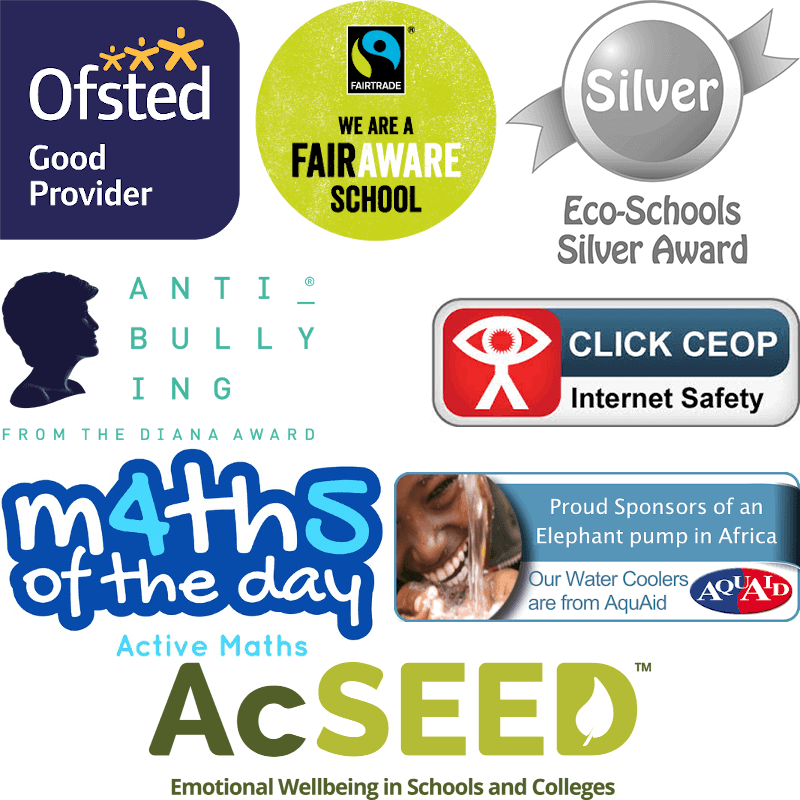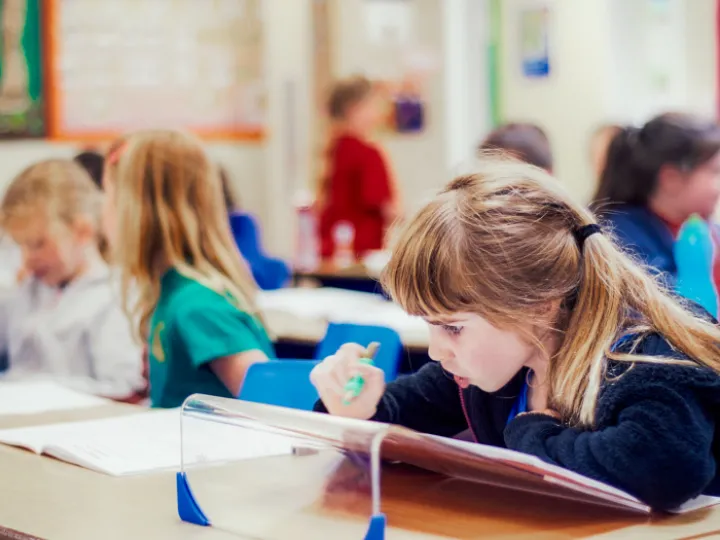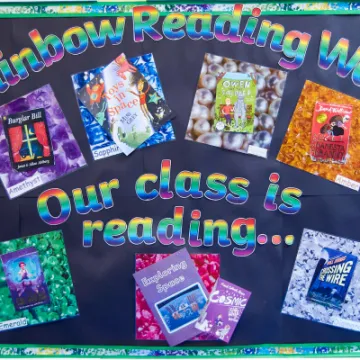English
Design
At Audlem St James Primary School we intend our children to gain English skills that will allow them to achieve success both academically and personally throughout their lives. We want all children to develop a love of reading, writing and discussion and to be able to express their ideas clearly and creatively. Our intention is to create readers who have the skills to access all parts of the curriculum with understanding; to have the ability to pursue their own interests through reading and to be able to talk about books with confidence. We also intend to create writers who can re-read, edit and improve their own writing, and enable pupils to be able to use the essential skills of handwriting, grammar, punctuation and spelling in order to produce written work that they are proud of.
Delivery
In order to help us to develop confident readers, writers and speakers who can express themselves in a variety of different styles and across a variety of contexts, our teaching of English is often cross-curricular and linked to our class topics. This provides our children with regular opportunities to talk, read and write for a range of purposes and audiences. We believe passionately in using quality whole class texts as part of this approach.
Reading is an important part of our curriculum and is an integral part of all of our lessons. At Audlem St James Primary School, we believe reading to children on a regular basis sets the children a good example, models good reading skills and introduces high quality writing to them.
Reading skills are taught progressively, starting with daily Read Write Inc phonics sessions in EYFS and KS1, 1:1 reading with children, guided reading and whole class shared reading.
We follow a Mastery approach to English through the programme Pathways to Read from Y2 to Y6. Units of work are delivered using high quality texts and children in all year groups are given varied opportunities for reading. Skills are built up through repetition within the units, and children apply these skills in the reading activities provided.
We recognise that at the heart of reading is its purpose: we read for meaning. Reading for both information and to connect and experience texts is achieved by developing high quality classroom talk, response and questioning as an integral part of teaching and learning across the curriculum. We create an environment of rich dialogue and response towards all types of text.
Explicit exploration and development of literal, inferential and evaluative questioning by both teachers and pupils is foundational in improving comprehension.
Grouped reading sessions have four parts:
Predict/summarise – Pupils summarise previous reading or predict what will happen in the section of text to be read.
Strategy check/ vocabulary – Reading strategy is practised here e.g. visualisation, reading aloud, working out unknown words. Vocabulary is discussed, clarified and classified.
Read for a range of purposes – A key question based on the mastery skills is presented.
Discuss understanding – Pupils' answers to the key question are discussed and any misconceptions addressed.
Each Key Stage within the school focuses on age appropriate skills and uses a range of strategies and interventions to support the pupils. Interventions include IDL, Precision Teaching, Talk Boost, Inference Training, RWInc Ditties and differentiated phonics groups.
Writing tasks are specific and meaningful, linked to class topics and texts. They often meet a purpose to engage children and to illustrate how their writing skills can be applied to real life contexts. Grammar and punctuation skills are taught as part of English lessons so that these skills can be applied appropriately to the genre being taught, although they may sometimes be taught in separate sessions if necessary.
Writing is an important part of our curriculum and is an integral part of all of our lessons. At Audlem St James Primary School, writing is taught in a range of ways:
Modelled Writing: The teacher talks aloud the thought processes as a writer with the children. They model strategies in front of the children, communicating the strategies being used. Teachers may model writing skills such as punctuation, rehearsal, proof reading, editing, word selection, sentence construction and paragraphing.
Shared Writing: This is a collaborative approach in which the pupils contribute their ideas and thoughts for the teacher to write. The teacher models and teaches specific writing skills and there is the opportunity for discussion to choose the most effective or suitable ideas.
Supported Composition (Conscious Crafting): The children work in pairs to provide the next sentence of the text. This may follow from the modelled or the shared writing process.
Guided Writing: Pupil groups are differentiated and are identified through ongoing assessments. The teacher or other adult works with the group on a carefully selected task appropriate to that group's needs and targets. This will focus on a particular aspect of the writing process rather than writing a complete piece. Misconceptions, gaps in learning and common errors will be addressed through targeted group work. 'Greater depth' writing tasks are designed for those children who display the ability to extend and apply their writing skills to a deeper level.
Independent Writing: Children are given opportunities to apply their understanding of the text type in their own writing. They are encouraged to plan, draft, write, edit and publish their work, applying the skills they have learnt throughout the unit of work on that particular genre.
Pathways to Write is used throughout school to ensure progression of knowledge and skills and to provide the children with access to good quality texts to read as a starting point for writing.
All classes in EYFS, KS1 follow the Read Write Inc daily phonics programme. Spelling is taught daily in Phonics lessons, and Y2 and KS2 follow the RWInc Spelling Programme. Children who need additional support with spelling receive a variety of interventions that are tailored to address their gaps.
Alongside the skills of reading and writing, speaking and listening permeates the whole curriculum. Through shared reading, class discussion, drama, assemblies, school productions and other activities, children are able to develop their ability to listen to others, respond appropriately, learn new vocabulary, perform and express their views with confidence. We also value the 'quiet power' of some children and thus provide opportunities for them to participate in smaller groups or to express themselves in different ways.
Achievement
At Audlem, there will be a consistent approach to the teaching of English across the school and this will be evident as part of classroom and school displays. Children will make good or better progress from their own personal starting points. By the end of KS2 they will be able to read a wide range of texts fluently and with understanding. Children will write clearly and accurately and adapt their language and style for a range of contexts, purposes and audiences. They will acquire a wide vocabulary and feel confident to use it both verbally and in their writing. This will be measured through a variety of methods such as, summative and formative assessments each term, pupil voice, lesson observations, questioning and marking of books. Most importantly, the children at Audlem will develop a love of reading, writing and discussion and therefore be well-equipped for the rest of their lives
Our Partners





